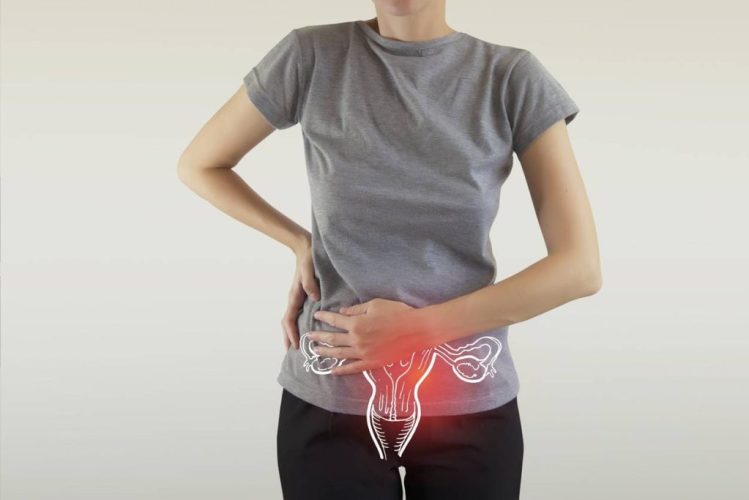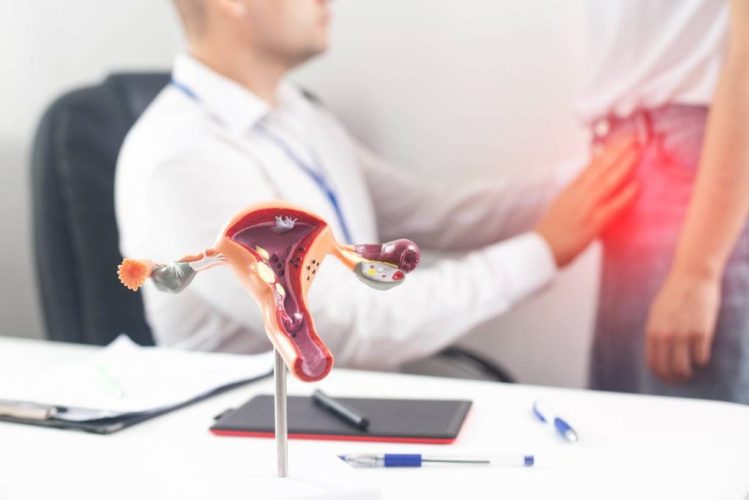Vaginal pain affects nearly 20% of women, regardless of age. This pain can manifest itself in different ways. It depends on the location and timing of the pain, as well as the trigger. The pain can be caused by a vaginal infection, lichen, STD, hormonal deficiency or trauma. If you live in Canada and suffer from vaginal pain, don't hesitate to make an appointment at one of the Marois Clinics. These health professionals use revolutionary techniques to treat your pain.
The symptoms of these pains in women
Vaginal pain can be pain in the perineum, labia, vestibule, vagina, clitoris and even the anus. It can be felt at the entrance or inside the vagina. These pains are usually accompanied by itching, a burning sensation or a muscle imbalance, such as a significant increase in tone.
The pain sensation can range from discomfort to intense pain when touching the area or during sexual intercourse. A woman who suffers from vaginal pain has great difficulty wearing tight pants or underwear or riding a bicycle.
Causes of vaginal pain
The origin of vaginal pain is still unknown. However, different factors can play an important role.
-
Vaginitis
Vaginitis manifests itself as vulvar pain. It is usually accompanied by itching and burning of the vulva. Vaginitis can be infectious. If it is infectious, a heavy vaginal discharge is seen. It is whitish and looks like curdled milk if the vaginitis is related to a mycosis. If it is related to a parasite such as trichomonas, the vaginal discharge is grayish and smelly. If the vaginal discharge is yellowish, vaginitis is related to a bacterial infection such as mycoplasma or chlamydia. In addition to the discharge, the woman experiences pain during intercourse. It can occur during penetration or when penetration is complete.
-
Vaginal atrophy
Vaginal pain can also be caused by vaginal atrophy. Common in postmenopausal women, vulvovaginal atrophy is caused by an estrogen deficiency that accelerates the deterioration of vulvovaginal tissue. The most obvious signs of vaginal atrophy are intimate dryness, dyspareunia and recurrent urinary tract infections. While vaginal atrophy is very common in postmenopausal women, not all women suffer from it. Finally, the symptoms of vaginal atrophy can appear in perimenopausal women or those who smoke.
-
Lichen sclerosus
Lichen sclerosus is a disease that affects one woman in 1000. It is located on the clitoris, the labia minora and at the entrance to the vagina. Lichen sclerosus causes pain during vaginal penetration and has an impact on the sexual life of women who suffer from it. Although it is not sexually transmitted, it prevents many women from achieving orgasm or feeling pleasure during sex. Lichen sclerosus causes the appearance of spots of different colors, but also the disappearance of the labia minora.
-
Vulvodynia
This term is used to define the pain that women may experience in their genital area. The pain may be generalized or localized. Vulvodynia can occur after penetration, insertion of a tampon or rubbing of underwear. It can also occur spontaneously. Women who suffer from it feel a sensation of heat, vaginal burning and irritation. The pain is usually constant and causes fear or anxiety about having sex.
-
Clitoridynia
Clitoridynia is pain that occurs in the clitoris. It can be considered as a localized vulvodynia. Clitoridynia is characterized by chronic pain that lasts for more than three months. These pains can be spontaneous or provoked. The causes of clitoridynia are not known. However, according to the International Society for Sexual Medicine, it is associated with vestibulodynia, lichen sclerosus or multiple sclerosis.
-
Chronic pelvic pain : (vaginismus)
Vaginismus is a painful spasm in the pelvic floor muscles that makes sexual intercourse difficult. There are two forms of vaginismus: primary vaginismus and secondary vaginismus. Primary vaginismus is when the pain is present at the first penetration. As for secondary vaginismus, it is about pains that occur years later. It can start overnight with no apparent cause. Similarly, vaginismus can be caused by trauma.
-
Dyspareunia
These are pains that the woman feels during penetration or after it has taken place. In the case of dyspareunia, the pain can vary in intensity. It can be perceived as a simple discomfort, a sharp pain or an unbearable pain. In the case of dyspareunia, penetration is difficult or even impossible. The pain is usually located at the entrance to the vagina. However, it can be felt on the walls or in the lower abdomen.
-
Dermatological conditions: vestibulodynia, lichen sclerosus, etc.
Various dermatological conditions can cause pain or itching. If it is an autoimmune condition, it should be monitored by a gynecologist. Dermatological conditions include lichen sclerosus, lichen simplex or lichen planus. While lichen sclerosus is limited to the perineum, lichen planus can affect the vaginal area, but also the rest of the body.
-
Hormonal deficiencies (atrophy)
Hormonal deficiencies can also cause vaginal pain. Women in perimenopause and those who are breastfeeding may experience a drop in estrogen levels. In this case, they may suffer from vulvovaginal pain.
-
Vaginal cancer
Vaginal pain can also be caused by vaginal cancer. If this is the case, you may not experience any symptoms in the early stages of the disease. Pain and other signs will only appear when the tumor has grown. Signs and symptoms of vaginal cancer include abnormal bleeding, foul-smelling vaginal discharge, painful sex or a lump in the vagina.


What to do to relieve vaginal pain?
When you feel pain in your vagina, vulva or perineum, you should not suffer in silence, but make an appointment with a doctor. In this case, your problem will be analyzed to find the cause of your pain. Depending on the diagnosis, different solutions will be proposed to you.
No matter what treatment is recommended, it is important to ensure that your pelvic floor muscles are relaxed. You should make an appointment with a physiotherapist. Perineal reeducation may also help.
Possible urological treatments
To relieve vaginal pain, various urological treatments are available at the Marois Clinics. If the pain is due to lichen sclerosus, it is possible to opt for a treatment with platelet-rich plasma. This treatment consists of injections of micro-droplets of plasma into the vulvar area. When the plasma is injected under the skin, the platelets release growth factors that stimulate the dermis. It is important to know that plasma injections to treat vulvar lichen sclerosus are 100% natural. Four sessions spread over two to four weeks are usually required. Each session lasts approximately one hour. The first results are visible between three and six months after the injections.
The Marois Clinics also offer treatment for vaginal pain using radio frequency and electrostimulation. The use of devices such as the Vtone, the Plus90 or the MorpheusV8 allow us to treat problems related to weakening of the pelvic floor, vaginal atrophy or lichen sclerosus. The Vtone induces electrostimulation. As for the MorpheusV8, it uses a bipolar radiofrequency technique. These two devices help to rehabilitate weak muscles and to fight against urinary incontinence. Finally, the Plus90 helps to improve blood circulation. Opting for vulvovaginal treatment with radio frequency and electrostimulation is risk-free. It is non-invasive, non-surgical and is approved by Health Canada.


Another type of treatment offered by Les Cliniques Marois is laser treatment. Non-invasive and painless, it consists of a circumferential photothermal treatment of the mucous membrane of the vaginal wall. Choosing to undergo laser treatment for vaginal atrophy activates the production of collagen and improves the vascularization of the mucosa. The procedure is very simple and offers excellent results. In fact, only two sessions are needed to obtain clear improvements in vaginal atrophy. In general, the treatment is effective for 15 to 18 months.
At Cliniques Marois, you can also have plasma injected to treat chronic bladder or urethral pain. Opting for an intimate injection of plasma for chronic bladder or urethral pain increases circulation and regenerates tissues in the clitoral, perineal and vaginal areas. When injected, platelet-rich plasma provides excellent results for 12 to 18 months. However, it is recommended to wait at least 48 hours before having sexual intercourse. Women who choose this treatment should also engage in daily physical activity.
Conclusion
Suffering from vaginal pain is not inevitable. If you suffer from vaginal pain, don't hesitate to consult a specialist, because it can affect your self-esteem and your sexuality.
To get your sex life back to normal, the Marois Clinics offer various treatments. All of them are highly effective, non-invasive and approved by Health Canada.
a


